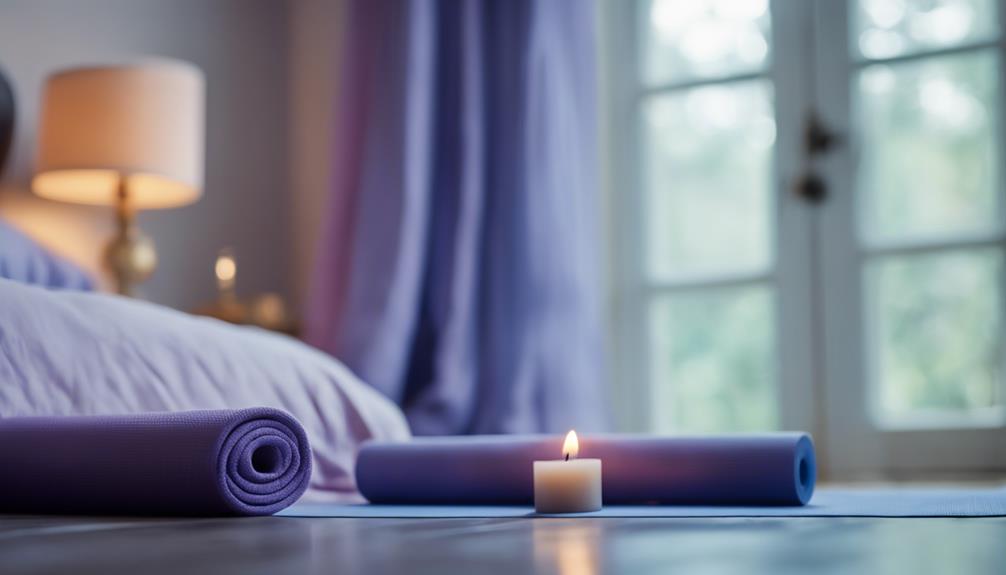Yoga has gained immense popularity in recent years, often touted as a panacea for various physical and mental ailments. One of the most frequently asked questions is, “Does yoga help with stress?” The answer, supported by extensive research and anecdotal evidence, is a resounding yes. This blog post will explore the myriad ways yoga can help alleviate stress and promote overall well-being, backed by scientific studies and expert opinions.
The Science Behind Yoga and Stress Relief
Understanding how yoga helps reduce stress begins with its physiological and psychological effects. When we experience stress, our bodies enter a “fight or flight” mode, releasing hormones like cortisol and adrenaline. These hormones can wreak havoc on our physical and mental health if left unchecked. Yoga, through its focus on deep breathing, meditation, and physical postures, activates the parasympathetic nervous system, promoting relaxation and reducing stress levels. Research published in the *Journal of Clinical Psychology* reveals that consistent yoga practice significantly lowers cortisol levels, demonstrating its effectiveness in managing stress.
Mindfulness and Meditation: Core Components of Yoga
Mindfulness and meditation are integral to most yoga practices, contributing significantly to stress reduction. By encouraging practitioners to focus on the present moment, yoga helps to quiet the mind and reduce anxiety. During yoga sessions, participants are guided to concentrate on their breath and bodily sensations, fostering a sense of awareness and acceptance. Studies have shown that mindfulness meditation can lead to a decrease in stress and anxiety symptoms, making yoga an excellent tool for mental health management. Engaging in mindfulness through yoga can also improve emotional regulation, helping individuals respond to stressors more calmly.
Physical Benefits of Yoga That Alleviate Stress
The physical postures or asanas in yoga play a crucial role in stress relief. These movements not only enhance flexibility and strength but also promote the release of built-up tension in the body. For instance, poses such as Child’s Pose or Downward Facing Dog can help release tension in the shoulders and back, common areas where stress accumulates. Furthermore, engaging in regular physical activity through yoga releases endorphins, the body’s natural stress relievers, which can elevate mood and provide a sense of well-being. Thus, the combination of physical movement and mindful breathing creates a holistic approach to managing stress.
Breath Control: A Powerful Stress Management Tool
One of the most significant aspects of yoga is pranayama, or breath control. Deep, intentional breathing exercises are designed to calm the nervous system and promote relaxation. Controlled breathing techniques, such as Ujjayi or Nadi Shodhana, have been shown to reduce feelings of anxiety and stress. By focusing on breath, individuals can create a sense of calm and clarity, making it easier to navigate stressful situations. Incorporating breathwork into your daily routine can be a game-changer for those seeking effective stress management strategies.
The Community Aspect of Yoga and Its Impact on Stress
Another often-overlooked aspect of yoga that contributes to stress relief is the sense of community it fosters. Participating in group classes allows individuals to connect with others who share similar goals and challenges. This sense of belonging can be incredibly comforting and supportive, providing a network of encouragement and understanding. Social interactions within a yoga community can help reduce feelings of isolation and loneliness, which are often exacerbated by stress. Additionally, the shared experience of practicing yoga can create a collective energy that enhances relaxation and mindfulness.
Yoga as a Complementary Therapy for Mental Health
For individuals dealing with anxiety or depression, yoga can serve as a complementary therapy alongside traditional treatment methods. Studies have indicated that yoga can be an effective adjunct to psychotherapy and medication for stress-related disorders. Many mental health professionals recommend incorporating yoga into treatment plans, citing its holistic benefits. The practice encourages self-awareness, self-acceptance, and emotional resilience, all of which are essential for managing stress and improving mental health. As such, yoga can be a valuable tool in a comprehensive approach to mental wellness.
Finding the Right Yoga Style for Stress Relief
Not all yoga styles are created equal when it comes to stress relief. For those seeking to alleviate stress, styles such as Hatha, Yin, and Restorative yoga are particularly beneficial. These slower-paced practices focus on gentle movements, deep stretching, and prolonged holds, allowing for relaxation and introspection. On the other hand, more vigorous styles like Vinyasa or Ashtanga may not provide the same level of calm for everyone, especially those dealing with high stress. It’s essential to explore different styles and find the one that resonates most with your needs and preferences. Consulting with a knowledgeable instructor can also guide you in choosing the best approach for your stress relief goals.
Incorporating Yoga into Your Daily Routine for Stress Management
To fully reap the benefits of yoga for stress relief, incorporating it into your daily routine is key. Even short, 10-15 minute sessions can make a significant difference. Start with simple stretches, breathing exercises, or guided meditations to gradually introduce yoga into your life. Consistency is crucial; the more regularly you practice, the more you’ll notice its positive effects on your stress levels. Additionally, consider utilizing online resources or apps that offer yoga classes tailored to stress relief, making it easier to maintain a regular practice. Remember, the journey of stress management through yoga is personal, and finding what works best for you is essential for long-term success.
In conclusion, the question “Does yoga help with stress?” is answered affirmatively by a wealth of evidence and practical experience. From its calming physical postures to its emphasis on mindfulness and community, yoga offers a comprehensive approach to managing stress. Whether you’re a seasoned practitioner or a beginner, incorporating yoga into your life can lead to profound benefits, enhancing both your physical and mental well-being. So why not roll out your mat today and begin your journey toward a more peaceful, stress-free life?Is Vinyasa Yoga HardHow Do You Start Yoga At HomeWho Health for All
